
Heinrich Adam (1787 – 15 February 1862) was a German painter.

Heinrich Adam (1787 – 15 February 1862) was a German painter.
Heinrich Adam, a brother of Albrecht Adam, was born in Nördlingen in 1787. He studied painting in Augsburg and Munich, and distinguished himself as a painter of landscapes and as an engraver. In 1811 he stayed with Albrecht at Lake Como, and painted in watercolours. He also engraved six hunting-pieces, after his brother Albrecht, at Milan, in 1813. [1]
Subsequently, he painted landscapes and views of towns, which are executed with great accuracy. [1] His Das neue München mit den Bauten König Ludwigs I. (1839), a view in oils of the Max-Josephs-Platz, surrounded by 14 smaller pictures of new buildings in Munich, mounted together in one frame, is in the collection of the Munich Stadtmuseum. [2] A set of watercolours in a similar format is in the Metropolitan Museum in New York. [3]
He died in Munich in 1862. [1]


Albrecht Adam was a Bavarian painter, who accompanied Napoleon Bonaparte during the 1812 Russian campaign. He was attached as an official artist to the Bavarian contingent in Bonaparte's Grande Armée. Throughout the campaign he sketched, painted and depicted an important record of the campaign to Moscow. In his memoirs he described the carnage of Borodino and late into his career he was still painting battle scenes from the Napoleonic period. He became a well-known equine artist, a legacy continued by his grandson, Emil Adam.

Leo von Klenze was a German architect and painter. He was the court architect of Ludwig I of Bavaria.
Lorenzo Quaglio the Younger was a genre painter and lithographer, born in Munich in the Electorate of Bavaria to the long Italian pedigree of Quaglios.
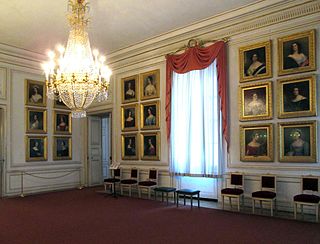
The Gallery of Beauties is a collection of 36 portraits of the most beautiful women from the nobility and bourgeoisie of Munich, Germany, painted between 1827 and 1850 and gathered by Ludwig I of Bavaria in the south pavilion of his Nymphenburg Palace in Munich. Two additional portraits were created by Friedrich Dürck, a student of Stieler. Its best-known works are the portraits of the shoemaker's daughter Helene Sedlmayr, the actress Charlotte von Hagn and the king's Irish mistresses Eliza Gilbert and Marianna Marquesa Florenzi. They include a Briton, a Greek, a Scot and an Israelite, along with relations of Ludwig's – the wife and daughter of Ludwig of Oettingen-Wallerstein were both painted, as was Ludwig I's daughter Princess Alexandra of Bavaria. All 36 women pictured were rewarded for modeling by Ludwig I. He took over their dowry, paid them an allowance or found them a job at court. He remained in active correspondence with some of them for years, while others only briefly crossed his life.

The Alter Südfriedhof also known as "Alter Südlicher Friedhof" is a cemetery in Munich, Germany. It was founded by Duke Albrecht V as a plague cemetery in 1563 about half a kilometer south of the Sendlinger Gate between Thalkirchner and Pestalozzistraße.

Auguste Strobl was a Bavarian beauty of the 19th century. The daughter of a royal chief accountant, she also appeared in the Gallery of Beauties gathered by Ludwig I of Bavaria.
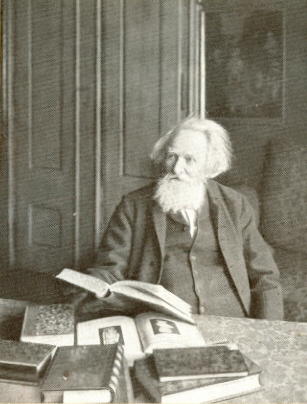
Johann Nepomuk Sepp was a German historian and politician, and a native of Bavaria.

Karl Joseph Aloys Agricola was a German artist, noted for his portrait miniatures.
Harriet Gouldsmith was an English landscape painter and etcher.

Karl Ballenberger (1801–1860) was a 19th-century German painter who worked in an archaic, medievalising style.
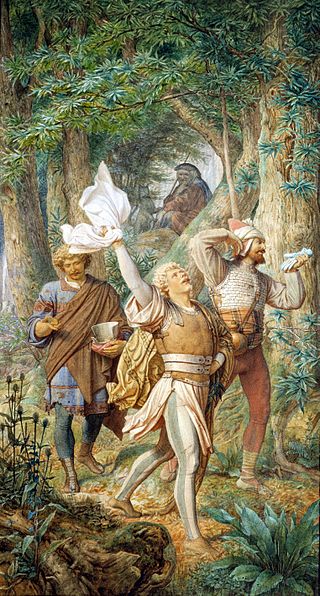
Joseph Ferdinand Becker (1846–1877) was a German painter.
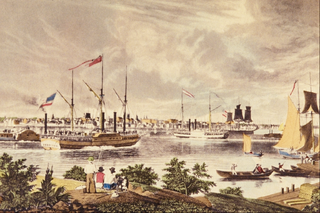
William James Bennett (1787−1844), was a British-born painter and engraver, active in the United States from 1816. He was a founder member of the "Associated Artists in Watercolour" in 1808. and twelve years later was elected an Associate of the Water-Colour Society.
Benjamin Calau (1724–1785) was a German portrait painter, who used an encaustic technique.
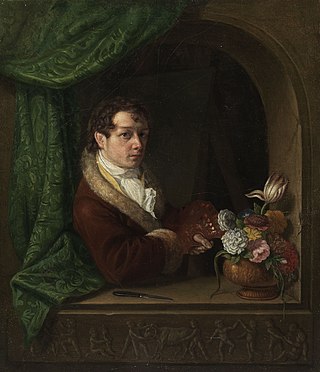
Franz Ludwig Catel was a German painter. He spent most of his career in Rome.

Friedrich Hohe was a German lithographer and painter. Born in Bayreuth, Bavaria, in 1802, his first painting teacher was his father, who was himself a painter. In 1820 he entered the Royal Academy of Fine Arts, Munich. Thereafter, from 1823 till near the end of his life, he devoted himself to lithography.

Albrecht Christoph Wilhelm von Diez was a German painter and illustrator of the Munich School.

Johann Friedrich Voltz was a German landscape and animal painter of the Munich School.
Michael Doeberl was a German historian who specialized in Bavarian history.

Julius Anton Adam, known as "Cats Adam", was a German genre painter and animalier specialising in pictures of cats.
Attribution: